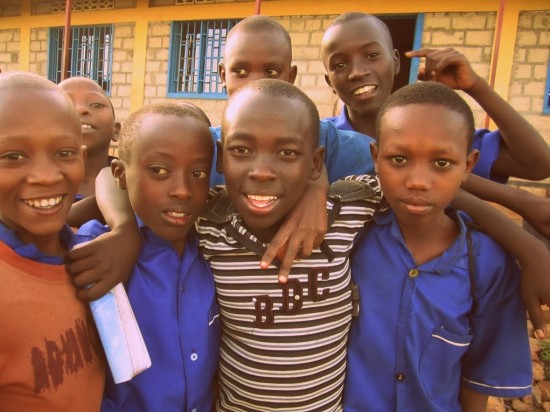Since the 1994 genocide, recovery and redevelopment efforts in Rwanda have concentrated on establishing a new economic trajectory — one that places emphasis on macroeconomic stability, wealth creation, and transformation to a formally educated, knowledge-based economy. Central to this approach have been efforts to expand access to basic levels of schooling for young people. Continue reading
Category Archives: Africa
The neoliberal harvest: Routine economic fraud in the Global North
Are you tired of yet another revelation of fraud in the food industry or the banks? Are you paying less attention to those stories? Are you getting numb, thinking more and more ‘that’s just how the system works’? If so, congratulations! You’re learning to lower your expectations to meet the new normal: pervasive, institutional economic fraud. This used to be the sort of thing you read about in income-poor countries in Africa and South America. Continue reading
From bland aid to brand aid? Distinguishing development assistance and development finance
(A fuller version of this argument is in the pipeline and will appear here in due course. Meanwhile, comments and suggestions are welcome – please post your responses here or tweet @cds_Bath using #brandaid)
The world of international development aid was never simple, but it seems to become ever more complex as agencies, financing mechanisms and acronyms proliferate. Public understanding struggles to keep up, with debate often pitched at a depressingly bland level. Is aid working? The correct answer, of course, is that aid comes in many different forms and brands. More interesting questions then abound, like which sorts of aid works best, when and why, and is the mix of different forms of aid right in different contexts? My proposition is that distinguishing between different forms of aid more clearly can contribute to raising the quality of public debate about its effectiveness. Continue reading
Aid impact assessment and agricultural change: Researching ‘good enough’ qualitative approaches
Using public money to reduce global poverty is a tough enough ‘task’ even without having to account for each pound spent every five minutes. But aid professionals can hardly claim to be less susceptible to self-serving group-think than anyone else, and indeed the case for strong reality checks on aid expenditure will remain particularly strong so long as the power and influence of those it aims to assist remains weak. How then to generate evidence on aid impact that is reliable, affordable and useful? Continue reading
‘Randomistas’ and microcredit: Shutting the evidence gate after the policy horse has bolted?
Microfinance is one area of development intervention that has experienced increased use of randomised control trials (RCTs) in the last few years, now seen by many as the ‘gold standard’ methodology for assessing impact. The gold standard approach to telling us what the findings impact studies collectively amount to is the systematic review. Since great claims for poverty reduction have been made for the impact of microcredit programmes in the past, the demand for evidence in this field is very high. Two recent DFID funded systematic reviews in this field have between them been downloaded more than 15,000 times, whereas DFID funded systematic reviews on other topics have had a few hundred downloads at most. Continue reading

